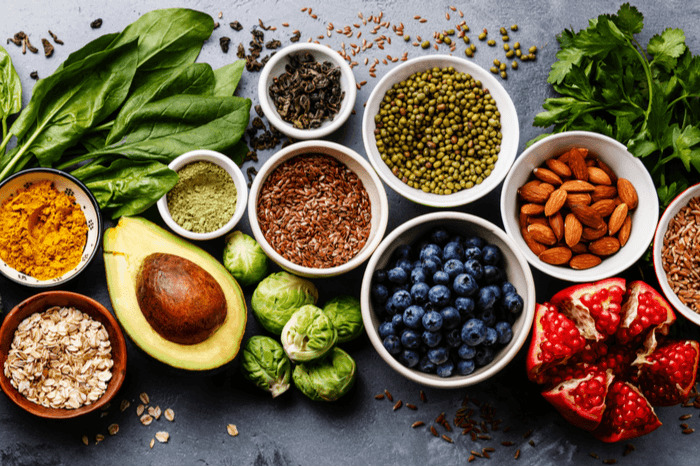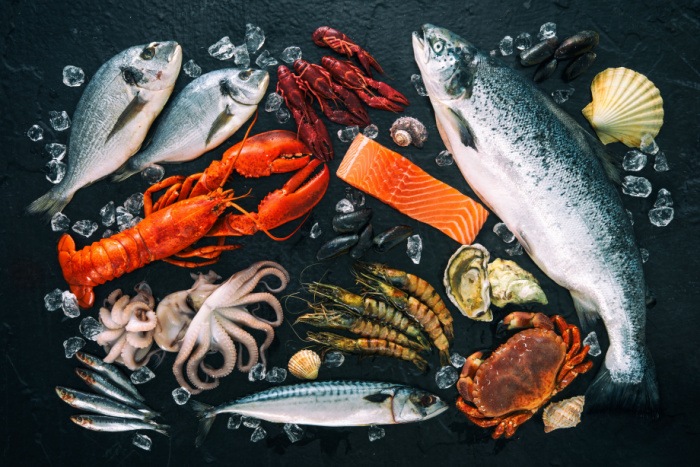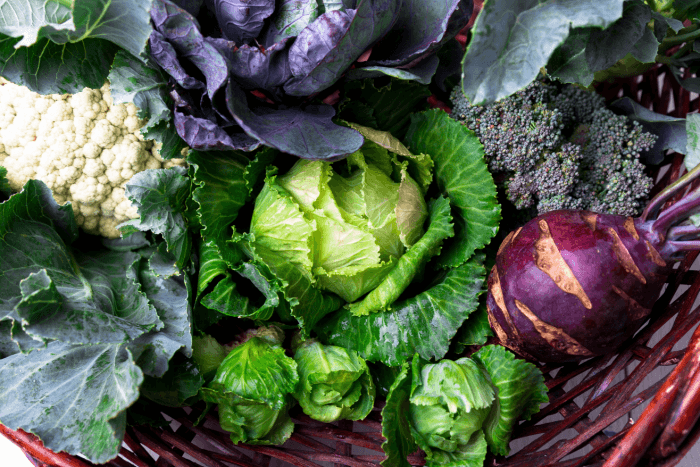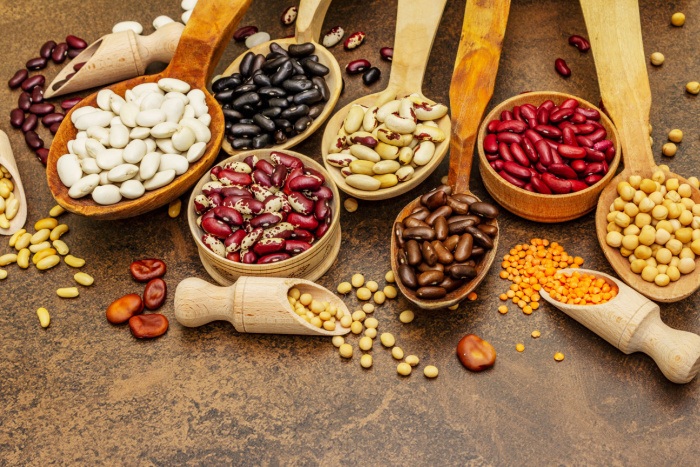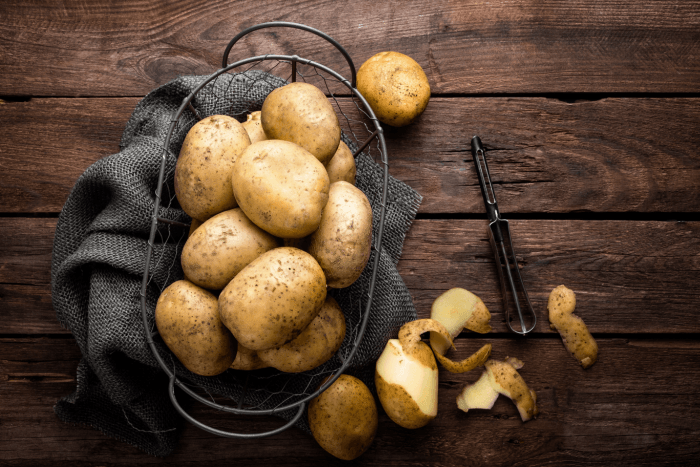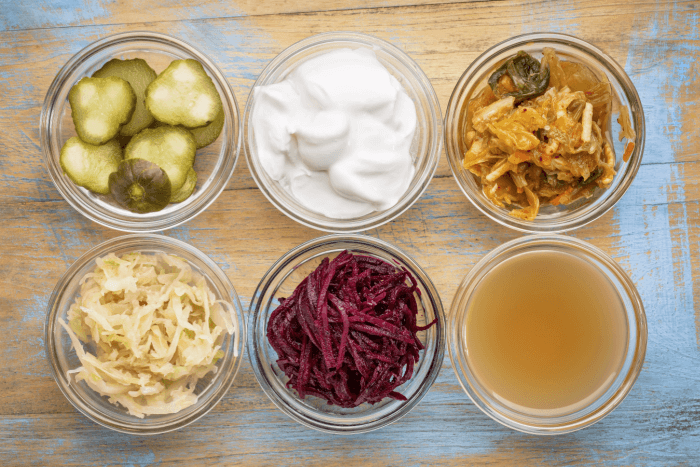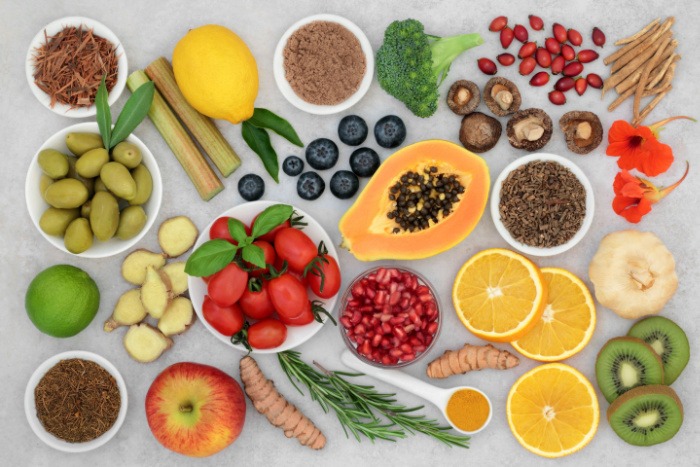Best Foods For Intermittent Fasting
Written by Andrew Brewer. ⚕️Reviewed and fact checked by our medical team.
When you are committed to intermittent fasting, there are two things you’ll be the most concerned about and they are actually sticking with your fasting program and the times that you are permitted to eat. The focus is not as much on what you eat, but more on when you eat.
Essentially, the best foods for intermittent fasting are the same foods you should be eating regardless of whether you are fasting or not. These are items such as potatoes, avocado, cruciferous vegetables, seafood, fish, nuts, foods which are fermented, and whole grains. You also need to remember to drink lots of water. This should become part of your daily routine even if you are not fasting.
Key Takeaways
- When practicing intermittent fasting, it’s important to focus on consuming nutrient-dense whole foods such as vegetables, fruits, beans, dairy, whole grains, nuts, seeds, and lean proteins to maintain good health and energy levels.
- Drinking water is critical to your health and well-being, especially during intermittent fasting. Aim for pale yellow urine to indicate proper hydration.
- Foods such as seafood, fish, avocados, cruciferous vegetables, beans, legumes, potatoes, probiotics, berries, eggs, and nuts are excellent choices for intermittent fasting as they help keep you full, provide energy, and support gut health and weight loss.
- Consuming foods that are high in fiber is essential during intermittent fasting to keep your digestive system functioning properly.
- It’s important to listen to your body and choose foods that work best for you during your fasting and eating periods. Remember to focus on the when, rather than the what, when it comes to intermittent fasting.
What Should You Eat While Intermittent Fasting
Since there are no specific rules about what sort of food or how much to eat while following your intermittent fasting program, it becomes largely a matter of common sense.
If you are sincere about losing weight, then eating a well-balanced diet is what will help you the most, as well as help you keep up your energy levels.
You basically should concentrate on consuming foods that are nutrient-dense such as vegetables, fruits, beans, dairy, whole grains, nuts, seeds and lean proteins. All of these foods are things you should be eating anyway in order to maintain good health and to have better health as well. That’s because they are unprocessed whole foods that are high in fiber but still have flavor and provide variety.
Let’s go over some examples of these foods:
1. Water
Of course water isn’t a real food, but it is essential if you want to stay healthy while intermittent fasting.
There’s just no getting around the fact that water is critical to the health and well being of every major organ in your body. Don’t think you can skip over this part of your program.
Exactly how much water each individual should drink is different from person to person. It depends on things such as your sex, weight, height, the climate you live in, and your level of activity. However, a good way to tell if you need to drink more water is based on the color of your urine. It should be a pale yellow all of the time.
If it is dark yellow, then your urine indicates that you are suffering from dehydration, which can lead to fatigue, headaches, and even lightheadedness. Add to that consuming limited amounts of food and you could be leading yourself right down the road to trouble.
If you are one of those people who just hates the idea of drinking plain water, then a bit of lemon juice, some cucumber slices, or some mint leaves should solve the problem and make the water a lot more palatable.
2. Seafood and Fish
You might not be aware of this, but the Dietary Guidelines for Americans recommend that adults consume 8 to 10 ounces of fish weekly.
Not only is fish very rich in proteins and fats that are healthy for you, it has large amounts of vitamin D.
And don’t worry. The ways to cook fish are so numerous that you will never get bored.
3. Avocados
Ironically avocados are the highest-calorie fruit, but it is due to their high unsaturated fat level, avocados will help you to stay feeling full even during the lengthiest fasting times.
4. Cruciferous Vegetables
It is a known fact that foods such as brussel sprouts, cauliflower and broccoli contain plenty of fiber. During intermittent fasting it is essential to eat foods that are fiber-rich to keep your system function properly. They also have the ability to make you feel full.
As a bonus, cruciferous vegetables can lower your risk of getting cancer.
5. Beans and Legumes
Turns out beans are good for more than just making chili taste fantastic. They are excellent for the intermittent fasting cycle.
Food containing lots of carbs gives you lots of energy for various activities. This will help to keep you from feeling tired during your fasting time. You don’t need to overdo it, just be sensible about eating these foods and you’ll be just fine.
Furthermore, there has been certain research that has indicated that foods like black beans, peas and lentils can help lower body weight, even if you do not engage in calorie restriction.
6. Potatoes
It has been shown that potatoes are one of the best foods you can eat for filling up. Also, if eaten together with a healthy diet, they can help you lose weight.
7. Probiotics
Those probiotic beings lurking in your gut require variety and constancy in order to function properly. Some probiotic-rich foods you should consider consuming to keep them happy are sauerkraut, kimchi, kefir and kombucha.
8. Berries for Flavonoids
These fruits are loaded with essential nutrients that you require for successful intermittent fasting. There is also further good news. Studies have discovered that people who eat a lot of flavonoids, like the kind found in strawberries and blueberries, had increases in BMI that were smaller than those who didn’t.
9. Eggs
Giving your body as much protein as you can is vital for feeling full and building muscle, particularly when you aren’t eating as much as usual. One large egg should do the trick.
10. Nuts
While they have more calories than lots of other snacks, nuts also hold within them something special: good fats.
Also, you needn’t be concerned about calories, because eating almonds will solve that problem for you. They have less calories than other types of nuts.
11. Whole Grains
The fact of the matter is that whole grains supply a lot of protein and fiber, so consuming just a little of them will do much to have you feeling full.
Conclusion
The above list contains some of the best foods that will help get you through the rigors of intermittent fasting feeling healthy and satisfied. Give them a try and you will be surprised at what a difference they can make.
FAQ
What are the best foods to eat during intermittent fasting?
During intermittent fasting, the best foods to eat are nutrient-dense whole foods that provide essential nutrients and satisfy hunger, such as fruits, vegetables, lean proteins, and healthy fats.
Can I eat high-calorie foods during intermittent fasting?
Maintaining a calorie deficit during intermittent fasting is important, so choosing lower-calorie foods that provide essential nutrients to support overall health is best.
What are the best foods to break a fast with?
The best foods to break a fast are easily digestible, nutrient-dense foods such as fruits, vegetables, and lean proteins.
Can I drink coffee or tea while fasting?
Yes, black coffee or tea without any added sugar or cream is allowed during the fasting period.
What are the best sources of protein for intermittent fasting?
The best protein sources for intermittent fasting are lean proteins such as chicken, turkey, fish, and eggs and plant-based sources such as beans, lentils, and tofu.
Can I eat carbohydrates during intermittent fasting?
Yes, carbohydrates can be included in the eating window of intermittent fasting, but it’s important to choose complex carbohydrates such as whole grains, fruits, and vegetables.
What are the best sources of healthy fats for intermittent fasting?
The best sources of healthy fats for intermittent fasting are plant-based fats such as nuts, seeds, avocado, and olive oil.
Should I avoid processed foods during intermittent fasting?
It’s best to avoid processed foods high in added sugars, unhealthy fats, and calories during intermittent fasting and focus on nutrient-dense whole foods to support overall health.
